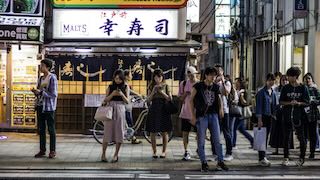TOKYO, Jan 03 (News On Japan) - Japanese school teachers are grappling with severe long working hours and staff shortages, leading to what some call a "fixed labor system" that allows overwork without adequate compensation.
In May, the Liberal Democratic Party proposed measures to improve working conditions, and the government is expected to announce further countermeasures. However, the pressing question remains: what changes should be prioritized?
One teacher, Junji Matsushita, exemplifies the grueling routine. As a sixth-grade homeroom teacher in Osaka, Matsushita rises at 2 a.m. to complete schoolwork left unfinished during the day. Balancing family life with professional demands, he often has mere moments to eat or rest. Matsushita highlights the importance of maintaining relationships with students, even amid the chaos of a packed schedule.
The burden on teachers has intensified in recent years. Additional responsibilities such as grading moral education and English since 2020 have added to already heavy workloads. A survey by the Ministry of Education revealed that over 64% of elementary school teachers exceed the monthly overtime cap of 45 hours, with more than 14% surpassing 80 hours, a threshold associated with overwork-related health risks. Staff shortages exacerbate the problem, making it increasingly difficult to find qualified personnel.
Efforts to address the crisis include proposals to increase teachers’ compensation from 4% to 10%, digitalize administrative tasks, and delegate non-teaching duties to external staff. Critics, however, argue that systemic issues, such as unpaid overtime and cultural expectations for teachers to shoulder excessive responsibilities, remain unaddressed. Experts emphasize the need for schools to focus on teaching while resisting demands from parents and local communities that contribute to workload inflation.
As the government prepares to unveil new guidelines this month, educators and policymakers hope to find tangible solutions to alleviate the strain on teachers, ensuring the sustainability of Japan’s education system.
Source: KTV NEWS















